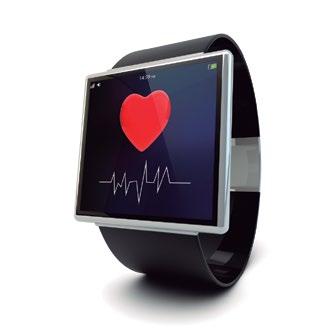38
MEDTECH AND WEARABLES
Thor Nissen
RESEARCH
Doctor, graduate in Clinical Pharmacology and MBA in Quality Management. He has managed to collaborate for the development of medicines in world leading pharmaceutical companies both in medical matters and in clinical research in new drugs, regulation, marketing and sales departments.
The year 2020 pandemic, has given a different grasp to the Greek root “tele”. Meaning distant or far, “tele” now is the way to keep people together and close. And medicine and healthcare are deeply involved in the question. It has been a long way since the Holter monitor started to be used in the 1960s to evaluate heartrelated pathologic conditions in ambulatory patients. The beginning of the new century and the technological boost, brought easier and ready to use gadgets able to provide real time information on heartrate to everyday joggers, along with other simple related metrics. These health care wearables started to multiply in the market and every smart watch now, includes assorted kinds of health monitoring functions. Wearables evolved to monitor different biomarkers for medical chronic and acute diseases. It is expected that more sophisticated condition specific devices will keep appearing to monitor particular ailments. These biomedical monitoring systems were initially focused in the elderly population, are progressively spreading to other populations, and keep moving from accessories to integrated
clothing, body attachments, and body inserts. They represent a distinctive possibility to gain a deeper knowledge of how certain diseases evolve. As they become more precise, targeted, and available, they bring health care into a new era of personalized real-time medicine. As constituents of telemedicine, telecare, telehealth, or other rising tele-denominations, they are now embedded in healthcare industry and are making a significant impact in increasing number of specialties. Personalized, self-worn, monitoring systems give valuable information for the owner and can transmit those measurements to caring physicians reducing the need of clinic visits. Home-based biomarker guided therapies can change the current approach of health care systems with clinical, economic, and social benefits. COVID-19 pandemic is a good example of the usefulness and safety of telemedicine and telemonitoring as shown by a prospective observational study in high-risk patients with a positive PCR test followed proactively with athome telemonitoring.

















